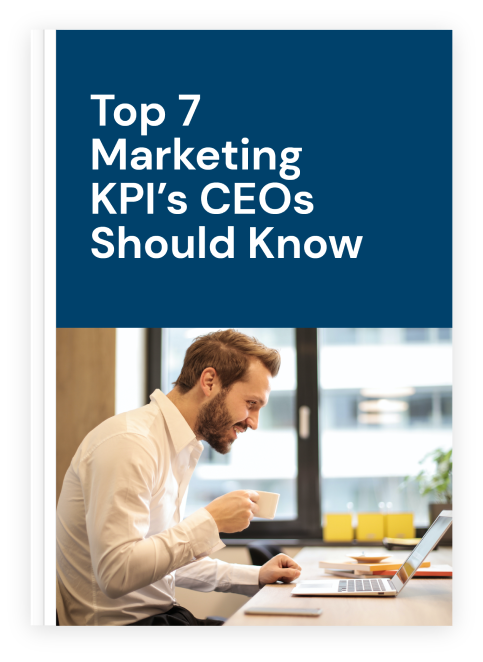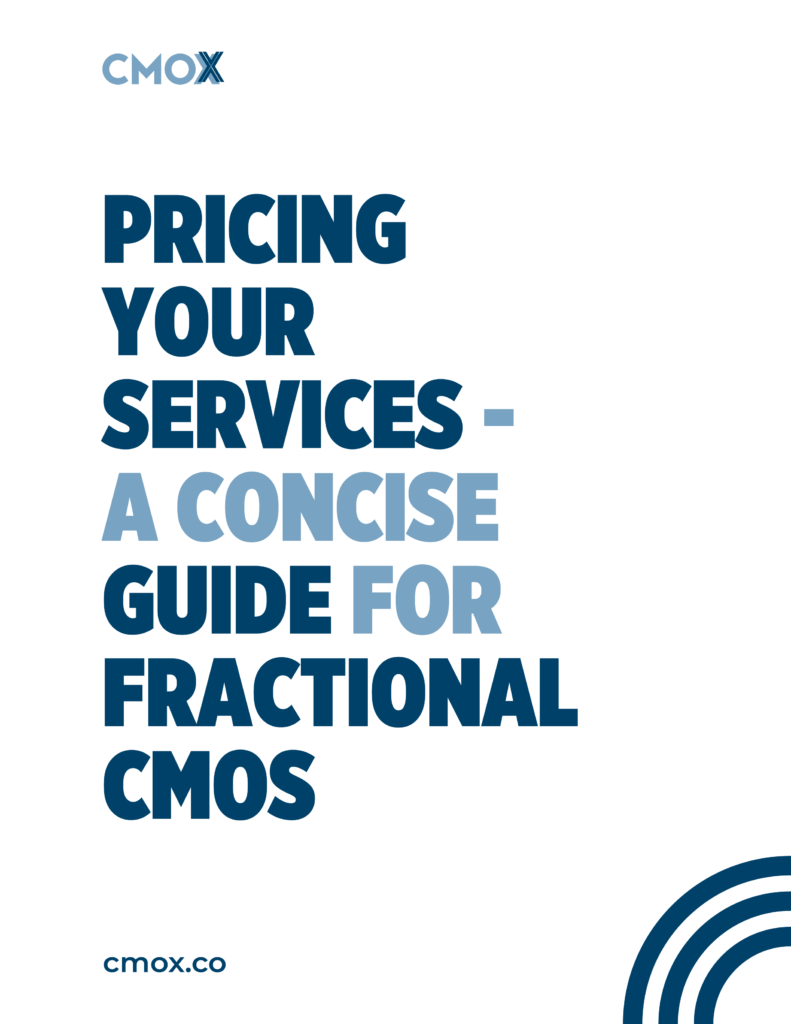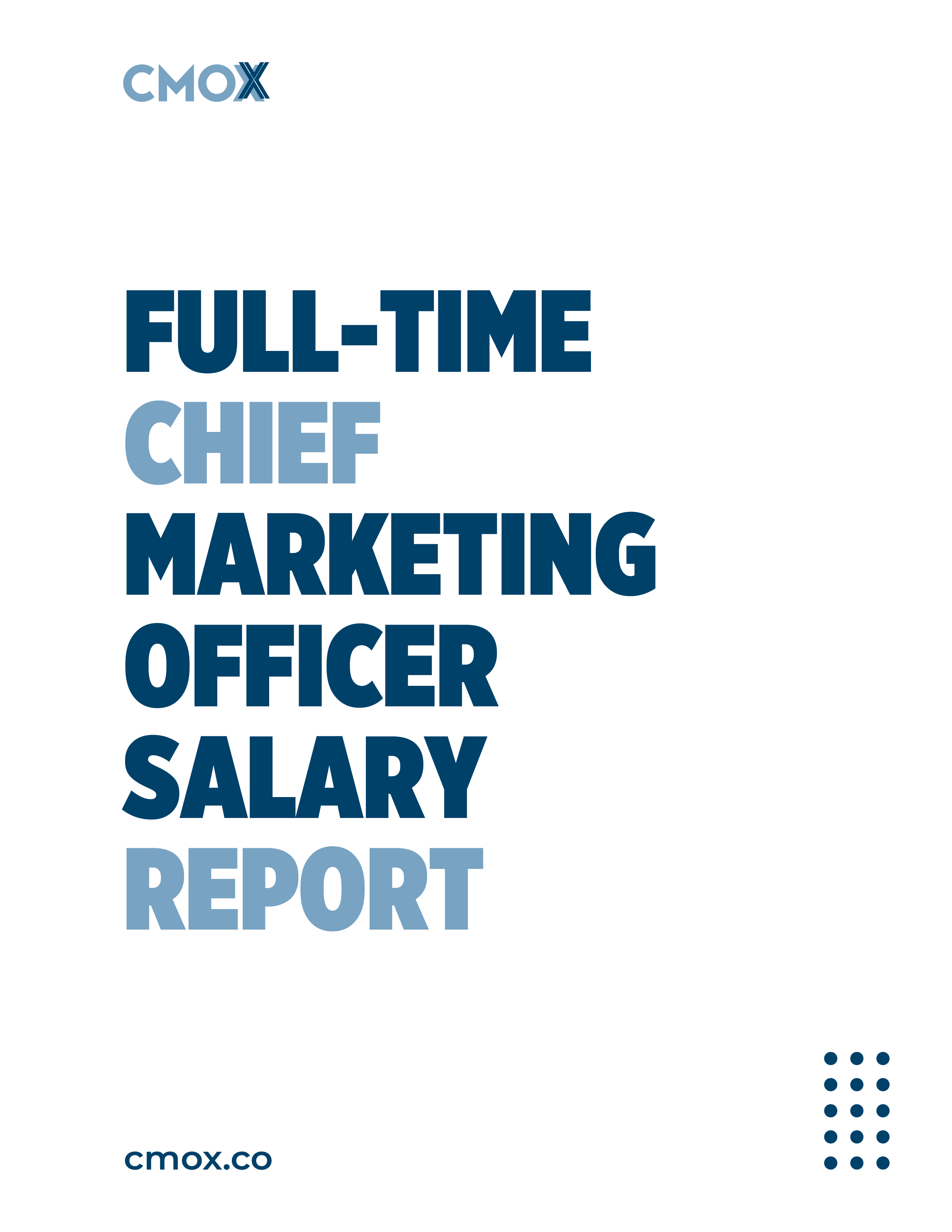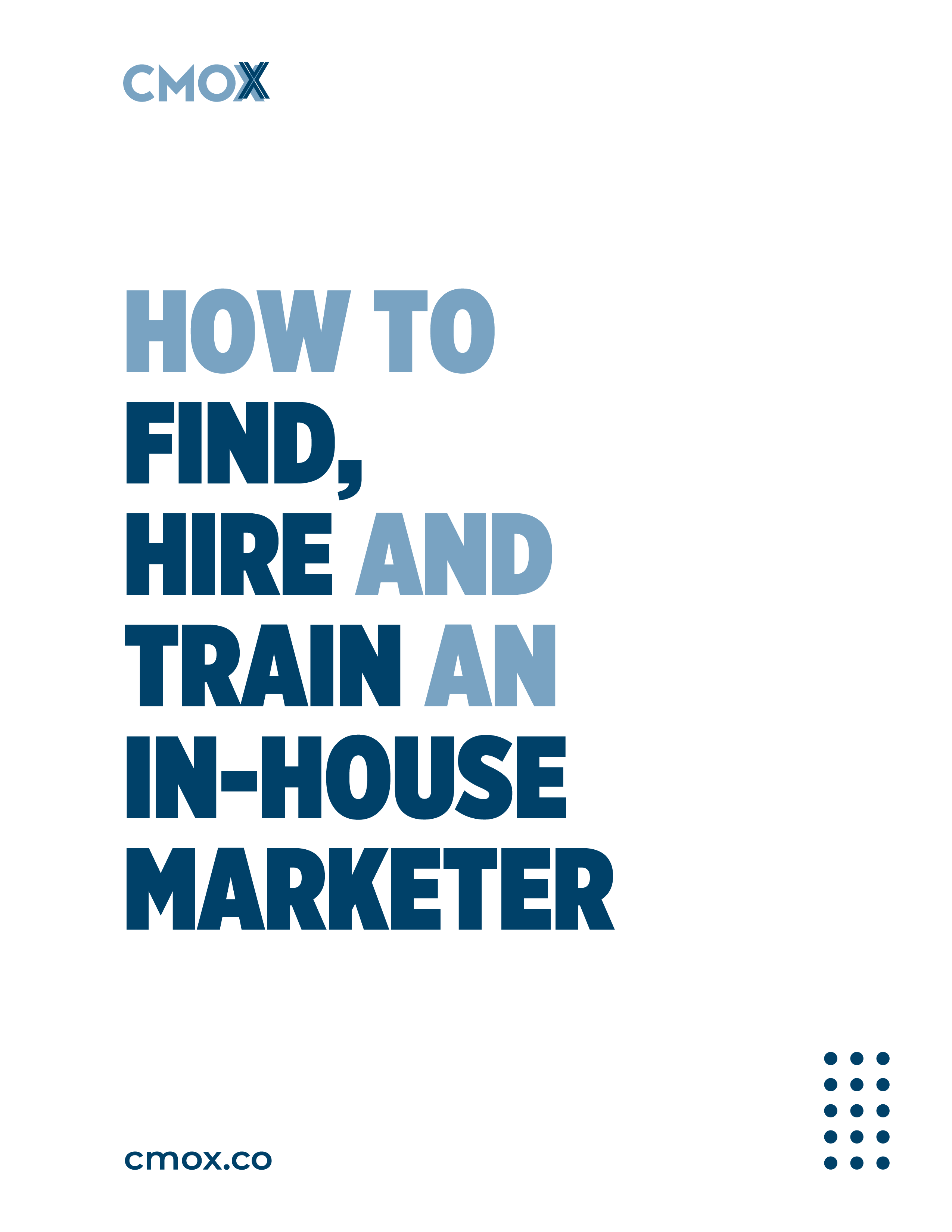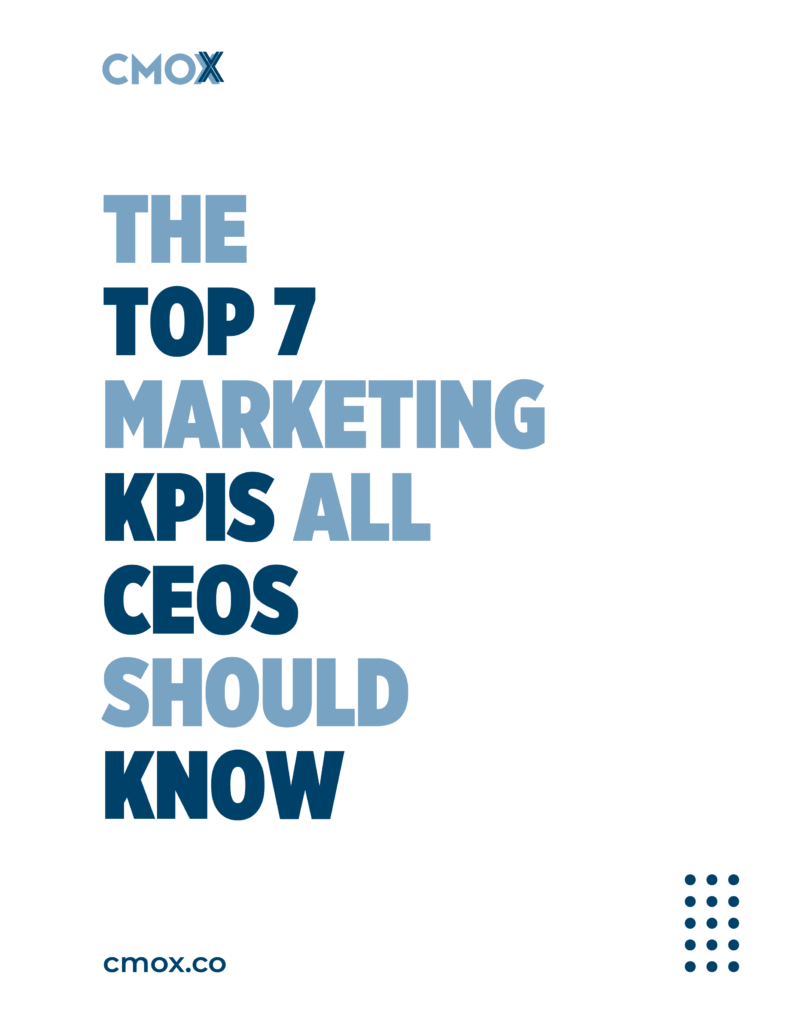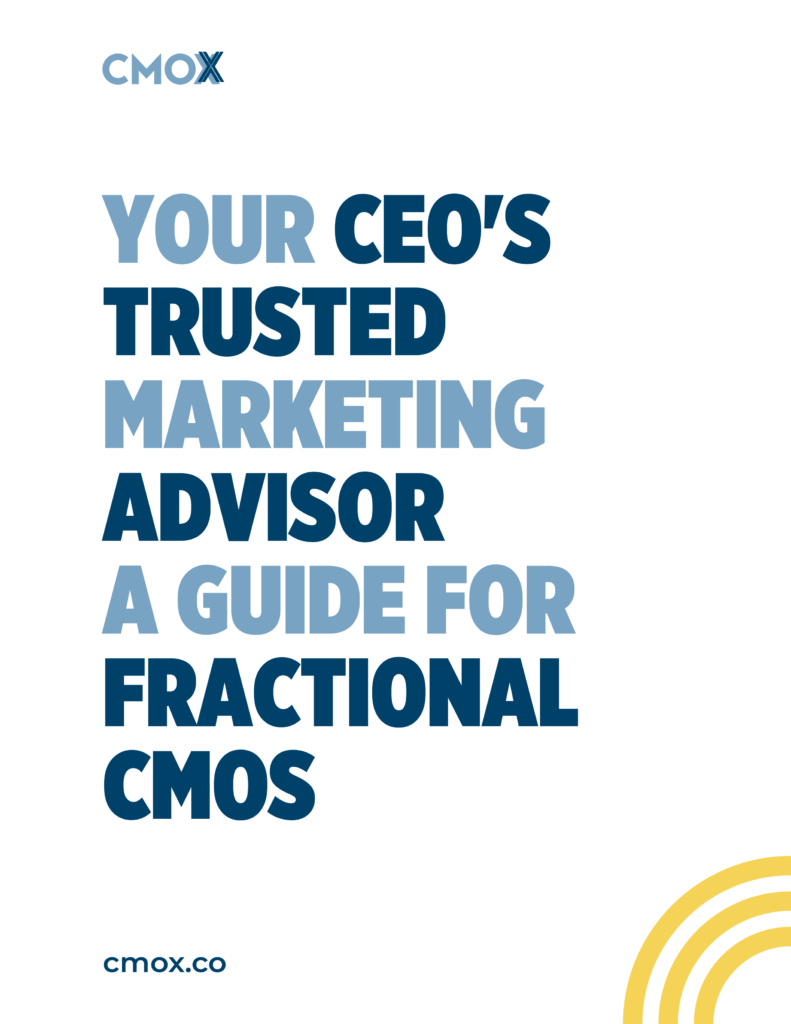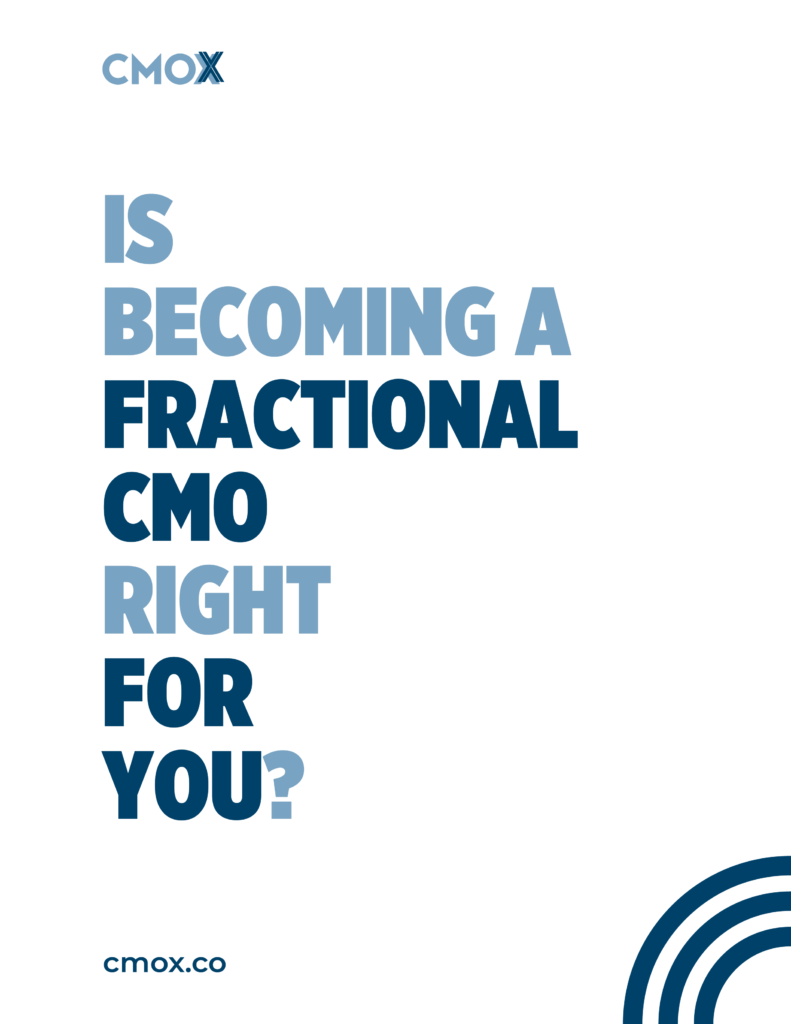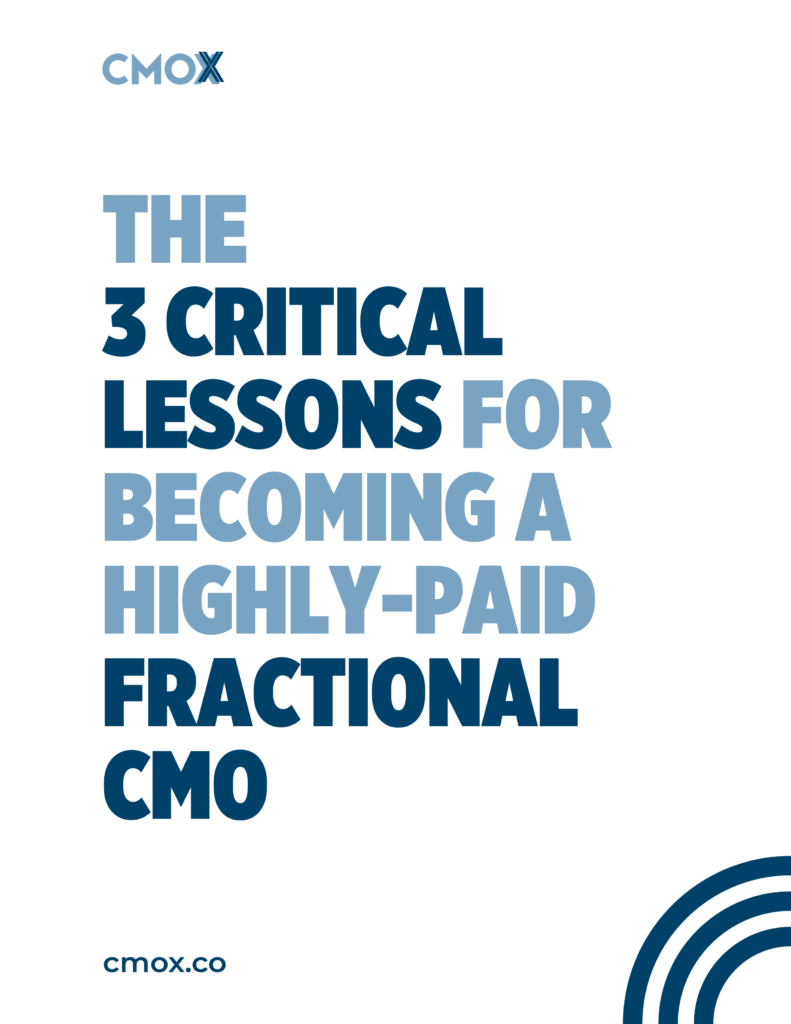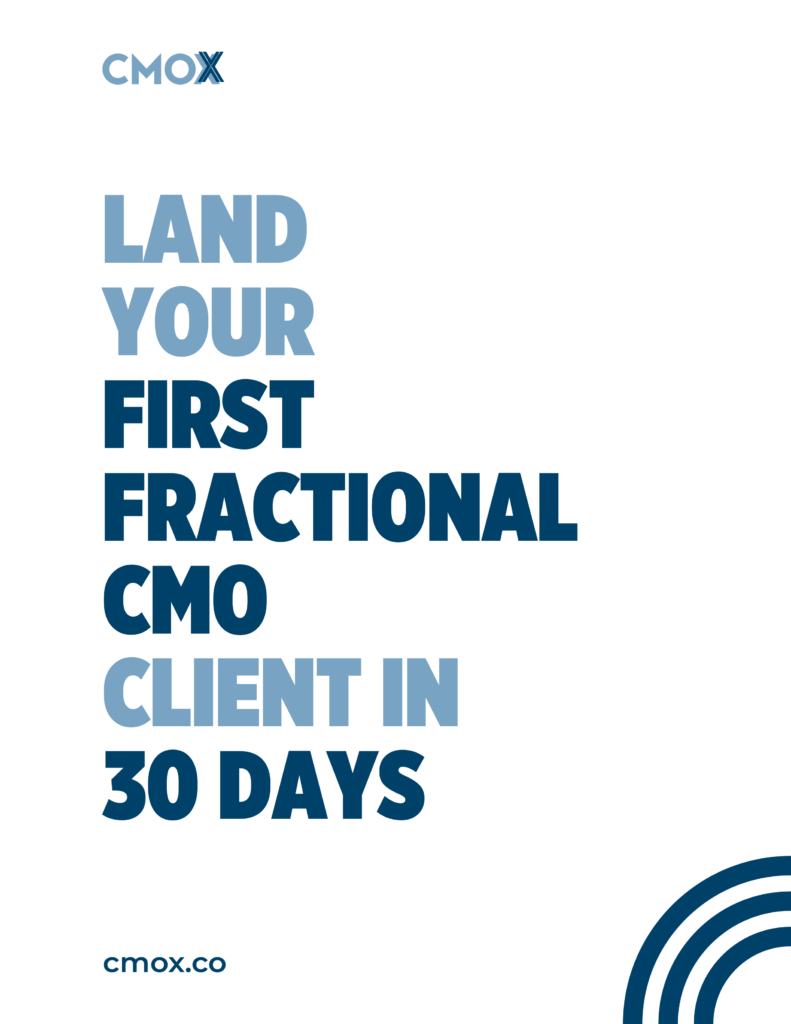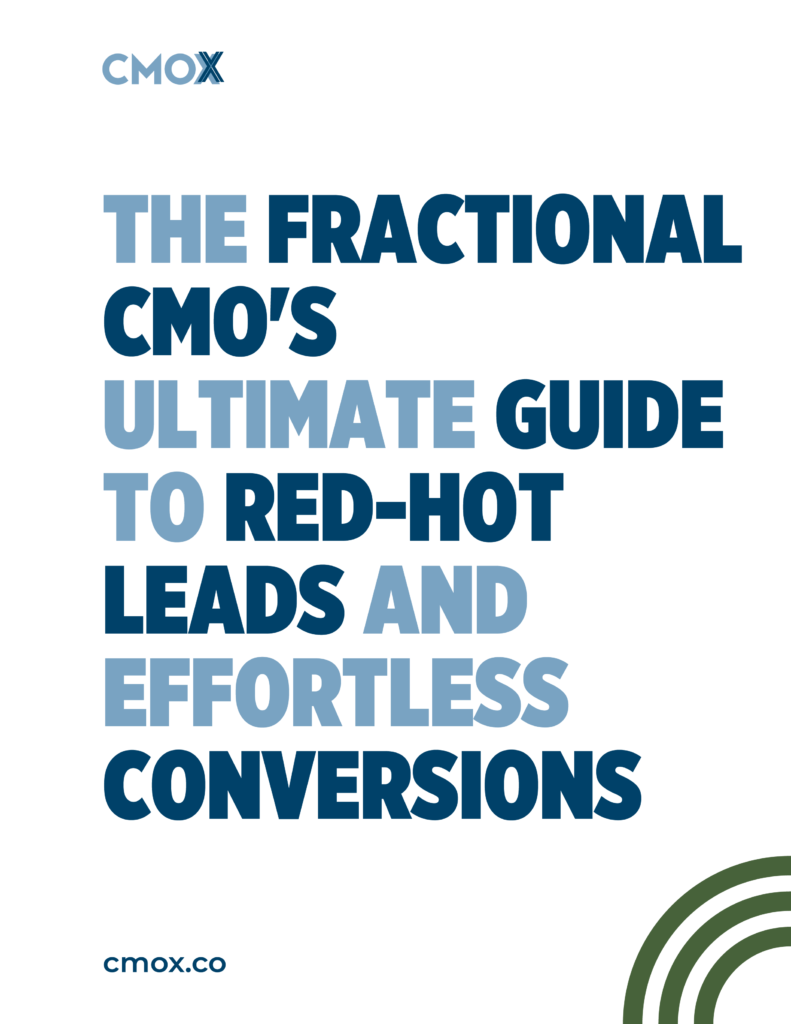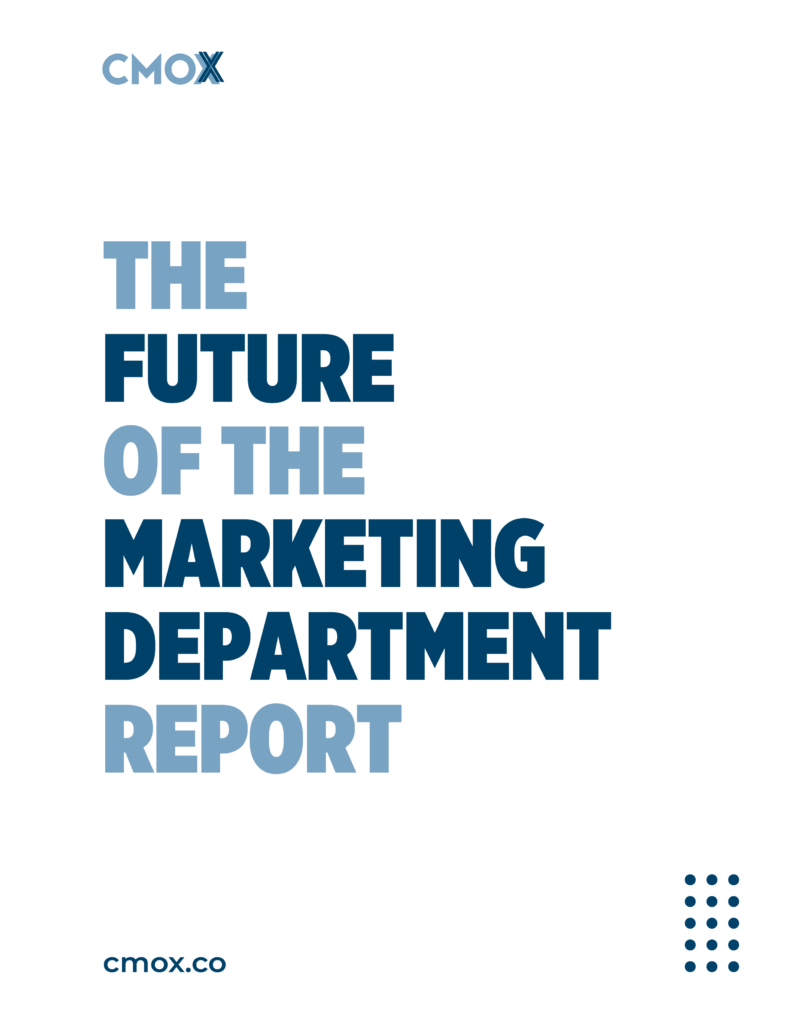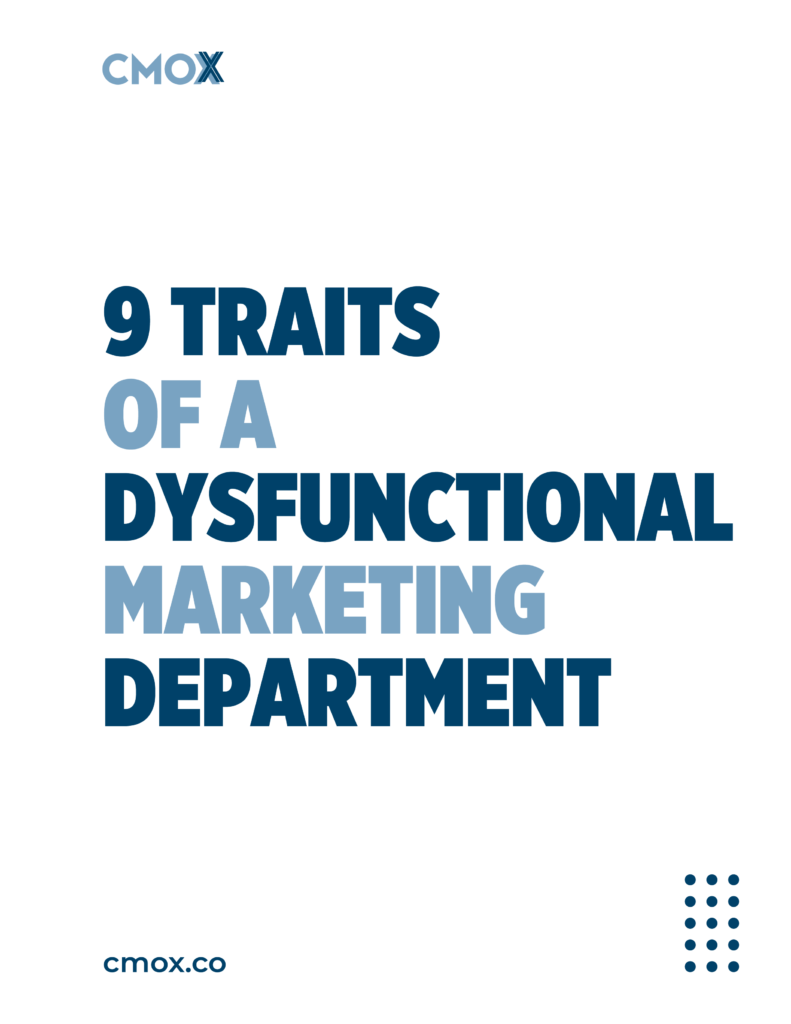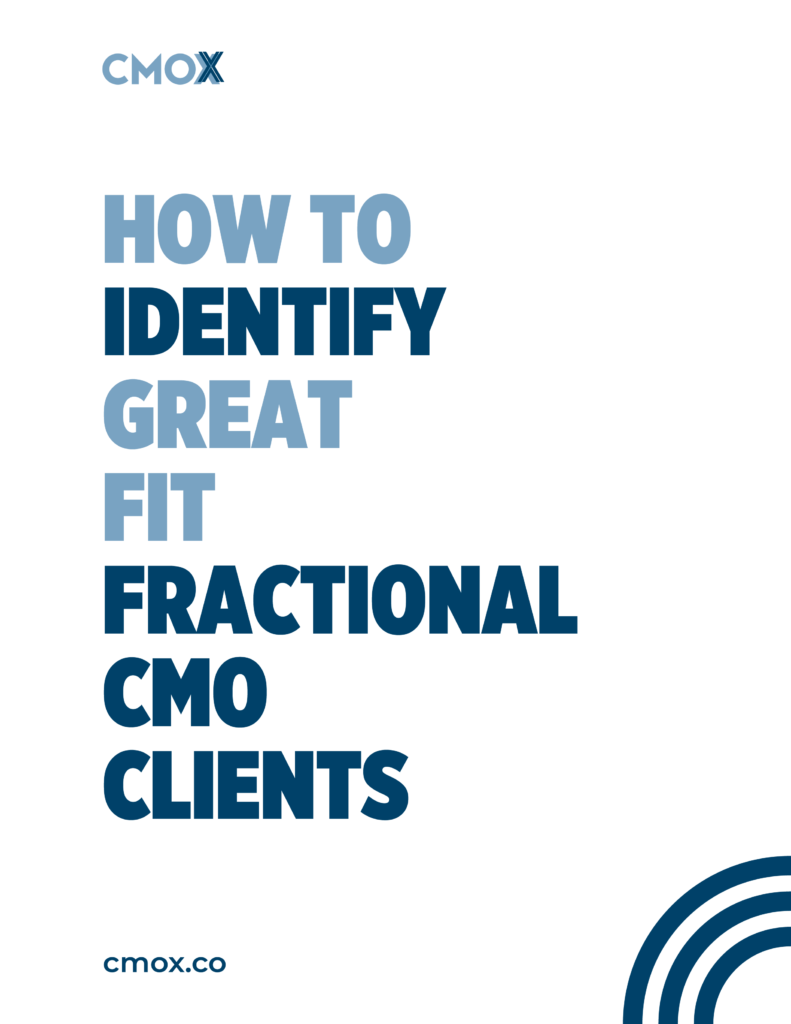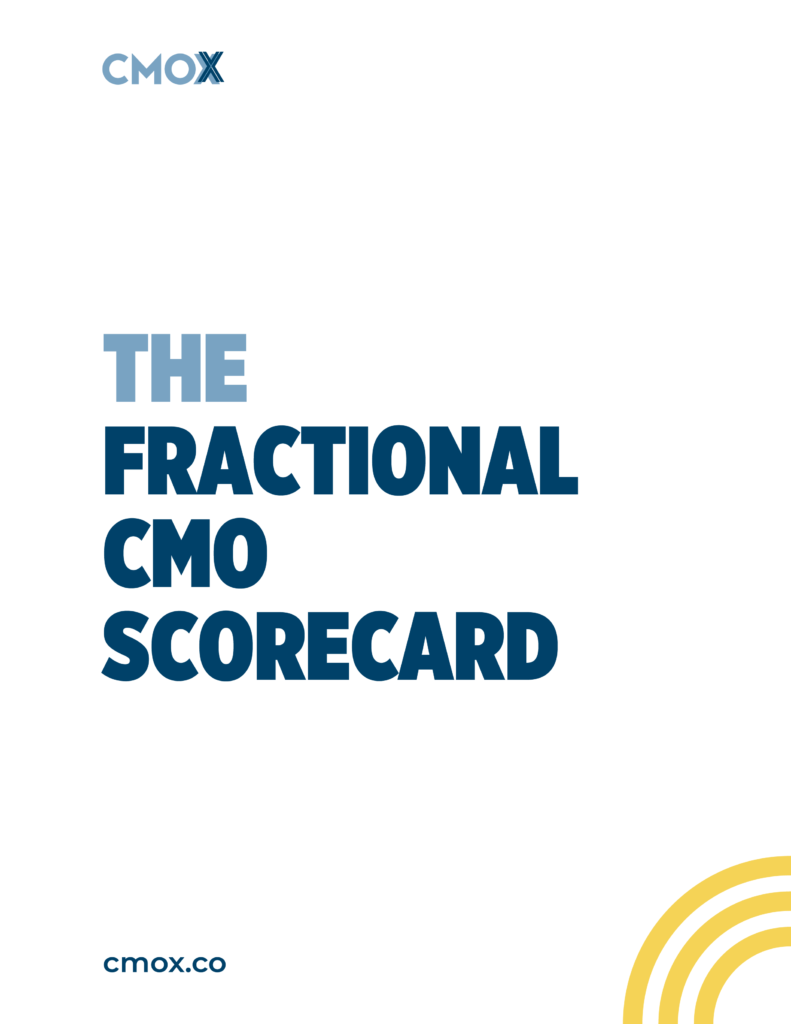Ep #93: You're too old/young/inexperienced to be a Fractional CMO

Not sure if you're experienced enough to be a successful fractional CMO? In this episode, Casey Stanton breaks down what it really takes to step into the role. He tackles common doubts about age, experience, and industry background—proving that success isn't about years in the game but about solving bigger problems. Casey shares insights on why marketing teams are shrinking, how AI is reshaping the landscape, and why confidence rooted in intention is the key to landing high-paying clients.

Episode highlights:
Not sure if you’re experienced enough to be a successful fractional CMO? In this episode, Casey Stanton breaks down what it really takes to step into the role. He tackles common doubts about age, experience, and industry background—proving that success isn’t about years in the game but about solving bigger problems. Casey shares insights on why marketing teams are shrinking, how AI is reshaping the landscape, and why confidence rooted in intention is the key to landing high-paying clients.
Here’s what we talked about:
- Experience vs. perception and why problem-solving matters more than years in the field.
- How AI is reshaping marketing teams and creating more opportunities for strategic leadership.
- Debunking the idea that you need decades of experience to be effective as a fractional CMO.
- Why confidence should come from intention rather than past experience.
- How to succeed as a fractional CMO even without direct experience in a particular industry.
- Why taking time off for personal reasons doesn’t disqualify you from leadership roles.
Transcript:
00:00:00 Casey: Hey, it’s Casey. And in this episode, I’m going to talk to you about, if you’ve got the experience required to be a successful fractional CMO, this is going to be a fun one. Let’s dive in. Marketers of the world. Why do we work hard to solve small problems? Why do we reinvent ourselves and our clients over and over? And why are we giving away marketing strategy for free?
00:00:22 Casey: With advancements in AI, we’re all seeing the marketing department shrink from the bottom up. And companies need you to serve them as their fractional chief marketing officer. It’s time to solve bigger problems and bring home a bigger paycheck. It’s time to create the lifestyle we deserve and to make a greater impact. This is the Fractional CMO Show and I’m Casey [Stanton.] Join me as we explore this growing industry and learn to solve bigger problems as marketing leaders.
00:00:52 Casey: The Fractional CMO Show is sponsored by CMOx, the number one company to teach you how to attract, convert and serve high paying fractional CMO clients on your terms. Alright, so this is something that I hear a lot and I think it deserves some conversation. And it’s this idea that you have to earn your stripes in order to be a fractional CMO. And this is a difficult one for me because at one hand, I’ve had someone in our Facebook community, the fractional CMO community, they said, “how can I be a fractional CMO?” And I was like, “oh, what’s your experience?” And they’re like, “oh, I’ve never done marketing before.”
00:01:36 Casey: Well, it’s obvious you can’t be a fractional CMO. It would be disingenuous. You have to have marketing experience, right? You gotta understand marketing. My belief is that you should understand how marketing really works beyond the abstraction of it, really the concreteness of marketing and I have a whole other episode on that I have recorded a couple of weeks ago that you can listen to. But if you understand how marketing works and you’ve been in teams and you’ve led people, you know, there really isn’t some kind of barrier that you have to cross in order to be successful as a fractional CMO. So I had a member just ask today, they’re younger than some of our other members.
00:02:24 Casey: And we’ve got some members that are older in the accelerator, know, older as 40s, 50s, 60s, whatever, who certainly have more time and more experience in marketing. However, they might not have the same [breadth] of experience that someone else has. So let me tell you this, like I started off in the marketing agency and I worked on a ton of projects side by side, like concurrently, just a bunch of stuff happening, product launch, book launch, website redesign, salesforce. restructuring, copywriting, content writing, troubleshooting, pixel issues, media buying, like my hands were in everything.
00:03:05 Casey: And I learned a ton. And in one year that I was at that agency, probably I lapped a lot of people who had spent five years in another business, like a traditional business that just didn’t have a lot going on in marketing. I’m sure you could think of a business that doesn’t have a lot going on. Like it doesn’t require much.
00:03:23 Casey: If you have a dental practice, like what’s the marketing for dental practice? You send postcards to people who just moved into the neighborhood to welcome them. You have some friend and offers to get people to come in. You run some Google ads and then you run some Facebook ads. Mean, maybe there’s one or two other things that you do, but like that’s kind of it. It’s pretty binary. It’s pretty simple.
00:03:43 Casey: So when I think of, what you have to do to earn the next level. Can you be a fractional CMO and be good and still be young? And what does young mean? Right? I mean, even that’s like a difficult thing to really define. And obviously you can hear in my tone that I think the answer is yes, you certainly can be. So my one year in agency would trump someone else’s five years. My three years in an agency, I might have more experience in marketing in three years at an agency than someone has in 15 or 20 years in a traditional marketing role at a company. Where they’re just doing marketing activity.
00:04:20 Casey: So it’s less about your age and more about your experience. And there’s places and ways for you to get more experience quickly. Also, if you have experience in depth, like in a niche, that’s really important. Companies tend to want to work with people who have worked in the space before. I work with a company, a wonderful company. They’re a franchise. I was talking to the owner the other day and he was like, “you know, one of the reasons that I really wanted to work with you is because you have franchise experience. He’s like, “I like what you had to say, but really the thing that sealed the deal for me was that you have franchise experience. And I do.
00:04:53 Casey: So that makes sense that he wants someone like that. He didn’t ask me, you know, “what’s your college degree?” “What were your grades in college?” Because my answer would have been environmental policy, not very good grades. And then I would have shared, you know, all of the things that I’ve done in marketing that were relevant. That’s the stuff that actually mattered, doesn’t matter like where I came from in school.
00:05:16 Casey: So I think of when I was living in New Orleans and I graduated college, I moved in with my sister, my parents ultimately, and then later moved in with my sister in [Ann Arbor] just to get out of my parents’ basement. And then I finally hit the road and I moved to New Orleans. And I got to New Orleans and I was working for this tech and marketing agency and I was just learning a ton and we were doing really cool big launches. And you know, I was the junior guy, but I was learning a ton during it.
00:05:44 Casey: And I was in New Orleans and I was like, alright, maybe the next thing for me is to go get my MBA. Like doesn’t that sound the right next step? And I go look at the MBA program and it was honestly laughable at Tulane. There was just nothing in the MBA program at that time that was relevant for me. I didn’t feel if I’d got my MBA that I would have been better off for any reason, like zero reason.
00:06:09 Casey: I would have lost money. I looked at their syllabus and it was things like, product placement. I don’t need to go to a class to learn how to place a product on a store shelf. That seems silly to me. Where are they at on multivariate split tests? You know, what are their opinions? What are they going to teach me about pixels and attribution for advertisements? You know, that’s the stuff that actually mattered.
00:06:37 Casey: So when I looked at the MBA program, I ultimately was like, that’s not for me. And I reached out to the folks there and I said, “hey, I’d love to guest lecture and just share what I’ve learned.” They said they would love to have me and they asked me for my transcripts. I was embarrassed because I didn’t do so well in school.
00:06:54 Casey: A year later, they messaged me again. Literally it was 12 months later and they were like, “hey, I’d love for you to come in and guest lecture.” I said, “I’d love to, but full disclosure, I’m embarrassed. I didn’t have good grades.” They said, “oh, it’s just a matter of process. We just have to have it on record. It doesn’t matter what your grades are.”
00:07:12 Casey: So I went and I guess lectured, long story short, I became an adjunct professor there at Tulane and I taught for a couple of years, I think three years. At the end I was teaching four separate classes. So I was part-time, but I had a ton of fun and it was great. And this all is in the arc of, I knew what I knew and I didn’t have to go get the badge of honor that says that I had an MBA. I want to be an adjunct professor. I was an adjunct professor at 25.
00:07:42 Casey: These other students in class, I mean, I still keep in touch with a lot of them, they were 21. I barely had years on them, but the years I did have were really focused marketing years. Maybe I was 26, 27, maybe when I started, something like that. So, it didn’t matter that I was young. I was experienced and had something that was unique and valuable. And the university saw that and they were like, “you’re in dude. I also had folks come in on the opposite side”. They say, “I’m too old, Casey.”
00:08:10 Casey: “Don’t you think I’m too old? I’m experiencing ageism.” People with gray hair tend to get looked over for younger people. Oftentimes, because people with gray hair are a little bit more expensive. They know their worth. And we can bring in someone younger and they’re a bit cheaper. Sure, that’s true. But as a fractional CMO, it doesn’t matter if you’re older or younger. It just doesn’t matter. It doesn’t matter if you live in another country.
00:08:34 Casey: I’ve had members in Canada, Portugal, let me think. Spain. I don’t think anyone in France, definitely Italy. An island off of Madagascar, Australia. There’s other countries I can’t think of. Sweden, Finland. We’ve had folks from all over the world. Bifractional CMOs. Dubai. Like folks all over the world. Jerusalem, Israel. So a ton of different locations.
00:09:09 Casey: It doesn’t matter where you live. You might want to target American businesses because being a fractional CMO in the States is a little bit more common than being a fractional CMO in Italy today. But it doesn’t mean that the pucks not going there in Italy soon. So it doesn’t matter that you live in another country. For most of my clients, I’ve never met them face to face. I just haven’t.
00:09:37 Casey: I went out to see one client quarterly. I’ve got a client now that I see quarterly, just quarterly for like a, you know, six, eight hours every quarter. We get together to do quarterly planning, which I enjoy. It’s fun to get out of the house, go on a little adventure, go kind of tool around, take myself out for a nice dinner afterwards. You know, it’s a fun little self-date and I don’t have to fly and just do them if they’re drivable. Yeah, it’s nice.
00:09:59 Casey: But for most of my clients, I’ve never met them. Isn’t that funny? People have paid me a lot of money over the years and I’ve never met them face to face. Or if I have, I’ve met them at an event or I was in town and we got together, but never because I was required to be there with them.
00:10:16 Casey: So it doesn’t matter that you live in another country. We’ve had other folks who are like, you know, they’ve got something about them that makes them feel different. And because of that, they can’t be a good fractional CMO. They don’t have direct experience in the niche. That’s one. Well, it’s going to happen that you might want to be in a niche that you don’t have direct experience in. And that’s okay.
00:10:38 Casey: I don’t have direct experience. I didn’t have direct experience in most of the niches that I got into when I got started. I just was eager and hungry and willing to do the work. I wasn’t all that efficient and as a result, my prices had to stay kind of low, but as I’ve gotten better, I can increase my prices. So not having experience in the niche is actually a benefit sometimes. Sometimes it’s a detriment. Sometimes you have to learn, but there’s never been a better education suite than [Grok], ChatGPT, Claude, Gemini, Copilot, whatever you want to use.
00:11:09 Casey: All of these tools are available to you to help you get up to speed really, really fast. Let’s say you’re in a market and another CMO knows all of the best places to advertise. Just ask [Rock], “hey, do a deep search for me and find the best places to advertise this XYZ business in these types of trade journals.” And it will give you a list and then maybe take that to ChatGPT and you say, all right, go through here and find the costs to advertise or show me all of the advertising, what do they call them? Like the PDF, the collection of like rates, like the rate cards. You can just query that and get the rate cards. And then you can know the answer without having to have 20 years of experience in the market. It doesn’t matter if you don’t have experience in the niche.
00:11:55 Casey: I’ve also had women mostly come in who have said stuff like, “oh, I had kids, I got this big work gap.” Isn’t that embarrassing? So years ago, when I was at the tech and marketing agency, I worked with this company called Topgrading, Brad Smart’s company, awesome company, really great approach to hiring a top tier executive to your team. So if you’re running a blue chip company and you want to hire someone for real, a real big time CMO, CEO, CFO, you would top grade them. And it was this exhaustive process of getting them to apply in a certain way and then having a top grading snapshot, which shows you their work history and their income from their work and any work gaps. And it’s in a graph. So you can just thumb through it and see who has gaps and who doesn’t.
00:12:44 Casey: You know, if someone had gaps for a couple of years, you probably wanted to question that because why weren’t they working? You know, that kind of stuff. Man, I really didn’t like it. Now as a father, as a husband, as a homeowner, right? I got a life man. Yeah, I’m going to have some work gaps for whatever reason. I’m going to have work gaps to be with my family, to chase hobbies, to, you know, when we have our next kid, I’ll take some time off, you know, that kind of stuff.
00:13:10 Casey: So it’s okay if you’re a woman and you’ve taken two years off to help your kid get raised. And now they’re off to a Pre-K or whatever. And if you’ve got some more space and you want to start flexing 20 hours a week as a fractional CMO, that’s fine. We don’t have to live inside of the rules and the constraints of others.
00:13:28 Casey: So, we had this member. I’ve interacted with her just a little bit because she’s pretty new, but she’s very bright. When you talk to someone, you just get a sense. You get it. “You’re smart. You’re intelligent. You’re eager. You’re hungry. You’re going to do great.” She’s got the eye of the tiger. It’s something I can’t teach. The eye of the tiger. She’s got it. And she said that some people, some fractional CMOs, are saying that she’s a little young. And I think that we have to take anything like that. Anything. Anyone that tells us that we’re not going to be successful that’s not a check writer, we just have to throw it away.
00:14:08 Casey: So, I love my wife dearly. If I ask her something like, “What do think about this for me to position myself?” Her opinion just doesn’t matter. If I ask my buddy… That guy, my buddy, Bill. Great guy. Love him. He’s in tech. If I tell him how I want to position and he’s got feedback for me, I’ll listen, but I won’t take it that seriously because it doesn’t matter what he says.
00:14:30 Casey: You know whose feedback matters? The check writer. The person who can write the check to hire me. That’s the only person whose opinion I care about. And too often, we’re in this echo chamber of other people saying what’s not working for them, or their negative experiences, or whatever. And oftentimes, they’re just stuck in their own bullshit. Do they actively want to keep us down? I don’t know if it’s that as much as they want to kind of maintain their perspective on the world and the fairness of things. And if something positive happens for us, some folks, I think, can have a difficult time with that because it reflects negatively on them.
00:15:09 Casey: I’m a big fan of that, the idea of mudita. I don’t know if you know the Buddhist term mudita, but it means sympathetic joy. Just like having joy in the success of others. That’s what we want to have. And maybe it’s an uncommon trait. It probably is. But that’s what we want to have. We don’t want to give negative feedback to people, tell them why we don’t think something’s going to work. At the end of the day, my opinion doesn’t matter. Go ask the check writer. If I’m the check writer and you ask me for my opinion, I’ll give it to you. And then I think my opinion matters.
00:15:40 Casey: So when you think about the people in your life that are giving you feedback—your spouse, your best friend, your work colleague who’s afraid of leaving their nine to five but you’re going off and becoming a fractional CMO, the mom who’s afraid to go back into the workforce because she’s been out for too long, the guy who’s been out of work for a year and is worried about everything and spends more time indoors and less time actually outside meeting people and keeping that faucet of opportunity open. These people’s opinions just don’t matter.
00:16:11 Casey: So, we have to put on blinders. That’s it. You just got to put on a blinder and go. Because I’ll tell you, fight me on this, that solving bigger problems is the solution. To me, it’s the only solution. The rest of my life, I’ll solve bigger problems.
00:16:28 Casey: So, an example of a big problem. Laundry. God, I hate laundry. I never had to run the washing machine again, I’d be happy. I haven’t run the washing machine. I don’t know. I mean, I’ve done it for a couple rugs that my dogs puked on. But besides that, I don’t do laundry and I don’t relegate my wife to do laundry. We have a service that picks it up. We put our laundry outside, it gets picked up. The next day, it gets dropped off and folded. And then, our housekeeper puts it away.
00:16:56 Casey: I solved the problem of laundry for the rest of my life. Assuming that happiness can continue to pick up my laundry and we have a housekeeper. That’s solving a big problem that buys me back my time so that I can go do the things that I want to do, spend the time doing the things that I like, that bring me joy, that bring me energy.
00:17:15 Casey: So, solving bigger problems is it. It doesn’t matter if you’re young or old. It doesn’t matter if you’ve had work gaps. It doesn’t matter if you’re straight or gay. It doesn’t matter if you live in Portugal or if you live in the U.S. It doesn’t matter if you live in a small town or a big city. It doesn’t matter; any of this stuff. What matters is your commitment to solve bigger problems, and then just to block out the noise. And that’s it. Let’s just block it out.
00:17:41 Casey: So, how do you block it out? You have to have something that you’re fighting for. For me, I wrote on a whiteboard, just outside of my screen view. Just boom, right here. If you see me on YouTube, boom, I’m off 15 degrees. I can see my whiteboard. I keep mantras there and I keep them simple. You have a season for things. This is a big idea that I have that I find really successful. I want a season that I’m in. And the season happens until it’s done. The season could be a month. It could be 12 months. Whatever. It doesn’t have to be three months.
00:18:16 Casey: So, here are some seasons for you. Go make offers. That’s the season. Just go make offers. Get as many offers out as you can. You’re in the season of making offers. Maybe you’ll get into another season of simplifying work—that’s one—where you just push down the work that you’re doing to simplify it as much as possible, so that you can take your Fridays off.
00:18:39 Casey: What’s another season? A season that you could be in is building deep connections with the industry. You can’t do all of this stuff at once, so just choose the season that you’re going to do it in. So the season is like, “All right. This is the season I’m in. I’m in the season of just building a bunch of contacts. I’m going to find everyone in my niche, in industry, and I’m going to understand all the related products.”
00:19:00:02 Casey: Example, you want to get into manufacturing, heavy equipment manufacturing. Cool. You can find all the heavy equipment manufacturers, start building inroads, but then find other product suppliers. Who supplies the grease? Who supplies the ball bearings? Who supplies the treads? Who supplies the battery terminals? All of the different pieces, you can really understand the market.
00:19:23 Casey: I don’t think you’re going to build a massive network overnight on that, but you can be in a season of doing outreach to build that. And then you can wane from that season and wax into a new season where you’re closing business. You have to be periodized on what you’re doing. You can’t just do it all at once.
00:19:44 Casey: So, for a lot of CMOs that are in the accelerator, they’re in the season of outreach, talking to strangers and winning business. It’s a good season to be in. It’s a good kind of mantra. So, solving bigger problems, that’s where you got to focus. At the end of the day, take it to the grave. Solve bigger problems. That’s where you want to be.
00:20:08 Casey: So, I hope you take that away. I hope what you take away from this today is your focus is just commit to this. I’m asking you to trust me, I guess, or question everything that I’m saying and check the proof, and watch the 30 video testimonials that we have at www.CMOx.co/call and see what everyone’s saying, and hear the language that they’re saying and how their life’s transformed by being a fractional CMO and how everything’s different. Go watch all that stuff if you need other people to tell you. But I’m just going to give you the cliff notes. This is the path if you want to be a leader in marketing. It’s to be a fractional chief marketing officer.
00:20:46 Casey: Yesterday, I was on a late call with one of our members, and he just had some questions about a very interesting niche and how to attack it. We had a ton of fun. It’s a new niche for me. I learned a lot. And at the end of the call, he said something to me, which was so nice to hear. It was totally unexpected. But I think that there’s a message in it for you. He said that when he watches me, one thing that he gets from me is the frequency of confidence. The frequency of confidence. And I just sat with that for the last day, and it’s like, “Okay. There’s a lot of clarity to that. That makes a lot of sense.” I bring a sense of confidence.
00:21:27 Casey: And I’ll tell you, right now, I’m in the middle of a project that’s tough. It’s a hard one for me. It’s in a niche I shouldn’t be in. I did it to help somebody. And it’s a tough one for me. I’m not over my skis. I know I can figure it out. I think I’m on the right path now. But it’s tough for me. Yet, when I show up, I have confidence that I will figure it out. I have confidence that I have the right team around me. I have confidence that if I can just clarify the question right, I can ask the right person and they’ll give me the right answer.
00:21:58 Casey: Confidence is what you want to build and what you’re doing. And you can’t fake confidence. Confidence comes from two things. Confidence, we often think comes from our experience. If I do the thing, then I’m confident that I could do it again. Yes for that.
00:22:17 Casey: And I think of my son. Christmas Eve, my wife and I stayed up super late. We built him a climbing wall in our living room, and it took a long time. And he really struggled to climb it. His body was shaking as he was climbing it. And my wife kind of coached him all the way up, and he can get up to the top, and he can sit up there and watch a show or whatever. It’s very cute. And now, he’s just like, “Oh, I’m just going up to my bird’s nest,” and he just hops up there. He has a sense of confidence. He’s done it before. He knows he can do it again. So, that’s one way that you can have confidence.
00:22:51 Casey: The other way you can have confidence—and this is the one that matters most to me, because so much of what I’m doing, I’ve never done before. So much of what you’ll do, you probably have never done before. Certainly, if you’re in new industries like AI-powered, whatever, it’s never been done before. So how can you have confidence in it?
00:23:08 Casey: Here’s how you get your confidence. You pull your confidence from your intention, not from your experience. I derive my confidence from my intention, not from my experience. My intention is to solve this problem, be helpful, deliver value to the client, be communicative, be a leader, be the strategist. That’s my intent, and I’m going to fight like hell to do it. I can’t think of anyone who could fight harder than me. Maybe other people can fight as hard as me, but no one’s going to be more committed, a harder fighter than me. Dude, I got it. I’m top of the game. There’s room at the top for you to join me. I’m not alone here. But it’s not like someone’s going to come in and be better than me, because I know that I’m committed to the outcome and I can derive my confidence from my intention, not from my action.
00:24:00:02 Casey: So for you, you’re too young, you’re too old, you’re too whatever—wrong. You’re perfect just as you are. Your problem is you’re getting introjections. So, external ideas getting jammed into your brain that you’re starting to believe; you’re kind of pulling into your belief system. My recommendation is to just block that stuff out and believe what I’m telling you.
00:24:27 Casey: Solving bigger problems is the game changer. Companies need a fractional CMO. AI is destabilizing the marketing department. There’s nowhere to go in marketing but up. Because if you go down, you’re losing your job. You got to stay high and elevate as the fractional CMO. This is it.
00:24:44 Casey: Plenty of old timers who think that you have to spend 20 years and blah, blah, blah to earn the stripes of whatever, they’ve got the MBA, who cares? The MBA that they have probably isn’t worth much, and you can get a better answer than they can give you from ChatGPT’s free version, right? So, you don’t need to earn all of these badges of honor in order to be taken seriously as a fractional CMO. You have to have confidence, and that confidence has to be derived from your intention to serve your client. And that’s it.
00:25:16 Casey: We don’t need more podcast episodes. This is the one. This is all you need to do. Just derive your confidence from your intention, fight like hell for your prospective clients, and deliver for them. That’s it. Age, throw it away. If you’re too young now, you’ll be too old later. No way. I’m going to keep doing this for the rest of my life because I enjoy it. It’s a fun puzzle. And if you want my help, just book a call with my team: www.CMOx.com/call. That’s it. Just book a call with the crew and we’ll see if we think we can help you. And if we can, we’ll tell you all about how we can and what it looks like. All right?
00:25:56 Casey: The future is being a fractal CMO. Absolutely. This is the way to go. And if you’re in marketing, I encourage you to heed the advice. All right. Thanks for being here. I’ll see you soon. Bye.
00:26:05 Casey: Thank you for sticking around for the full episode. As you know, learners are earners, but you’ve got to take action on what you heard today. For more information and show notes, visit www.FractionalCMOShow.com. If you’d like me to answer your questions on an upcoming episode, you can share your question at www.FractionalCMOShow.com. And last, please hit the like and subscribe button so that I know that this content is helpful to you. All right. Go get them.
Join Our Community
We are excited to announce the Fractional CMO Community Facebook Group. This aims to be a place where Fractional CMOs or marketers considering becoming a Fractional CMO can connect and share ideas.
Locations CMOx® serves
- New York
- Philadelphia
- Los Angeles
- San Francisco
- Chicago
- Houston
- Dallas
- Austin
- Miami
- Atlanta
- Denver
- Boston
- San Diego
- Seattle
- Portland
- Minneapolis
- Milwaukee
- Detroit
- Phoenix
- Washington D.C.
- St. Louis
- Toronto
